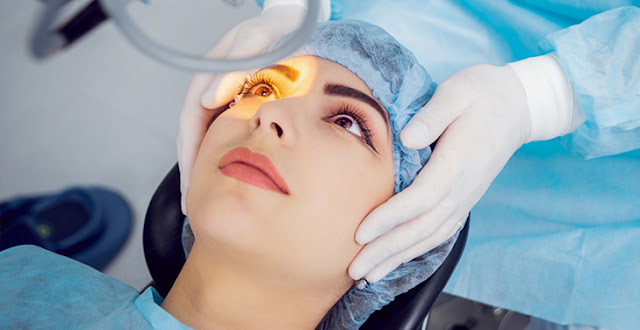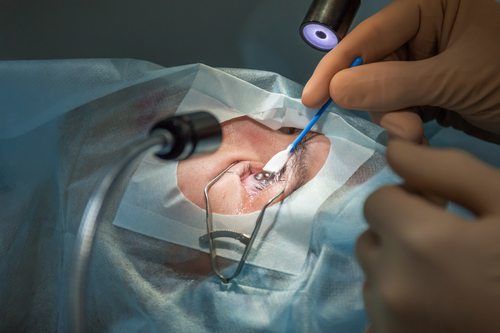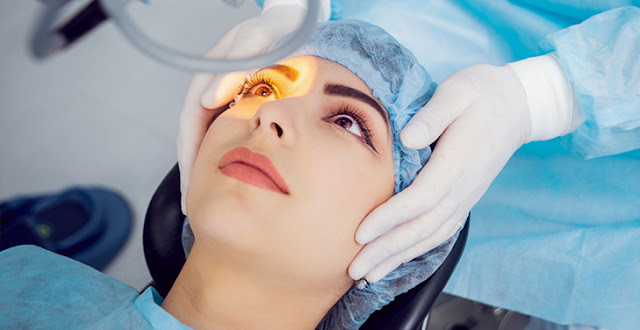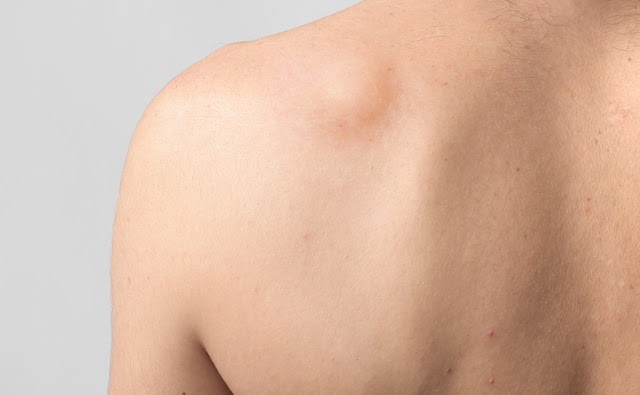The Side Effects of Lasik Eye Surgery
LASIK eye surgery has an excellent success rate and safety profile. By addressing myopia (nearsightedness), hyperopia (farsightedness), and astigmatism, this procedure can help you live without glasses or contacts. However, Side Effects of Lasik Surgery are also pretty common among many people that undergo this procedure.
What is
Lasik Eye Surgery?
Lasik stands
for Laser-assisted in situ keratomileuses. Keratomileuses is a type of eye
surgery that tries to improve a person’s vision by correcting refractive
defects in the eye. The cornea is a transparent portion of the eye that
protects the pupil and covers the outermost layer of the eye. Astigmatism,
myopia, and hypermetropia can all be caused by changes in the shape of a
person’s cornea. The reshaping of the cornea using Lasik eye surgery is a
medical procedure.
The goal of laser eye surgery is to improve a person’s vision by reshaping the cornea with precise laser technology. The most prevalent refracted faults improved by this procedure are nearsightedness and farsightedness. The procedure is risk-free for patients. Many side effects and laser eye surgery complications can be resolved with additional surgery or medical treatment. Sight-threatening complications like significant vision loss are extremely rare.
However, there are risks, restrictions and LASIK eye surgery side effects to be aware of before electing to have the treatment done, just as there are with any other operation (or any type of procedure, for that matter). Selecting a qualified and skilled LASIK eye surgeon can help you reduce these risks and have the best results possible.
Side Effects
or Risks
The
following are some of the common Lasik eye surgery side effects:
Temporary
Vision Disturbance
In the days
after LASIK surgery, you should expect to experience some discomfort, including
moderate irritation and light sensitivity. In the first few weeks or months,
you may notice halos, glare, and starbursts in low-light environments,
especially at night; dry eye symptoms; foggy vision; and reduced visual
clarity. In the vast majority of cases, these problems are only temporary,
lasting three to six months.
Flap
Complication
The LASIK procedure involves creating a tiny hinged flap on the front surface of the cornea. During surgery, this is raised to allow for laser eye reshaping. The flap is then repaired to form a natural bandage.
The LASIK
flap may not heal back in the eye’s surface if not placed properly with the right
medical adhesives, or microscopic creases known as striae (STRIE-ee) may form
in the flap. These flap issues may cause optical distortions and decreased
vision. Keep in mind that choosing a reputable, qualified eye surgeon will help
you avoid LASIK complications.
Dry Eyes
Tear production is reduced in some patients after they undergo Lasik eye surgery. This side effect can sometimes result in eye discomfort and poor eyesight. Nearly half of all cases of transitory dry eye syndrome are caused by LASIK surgery. Dry eye syndrome is usually only brief after LASIK surgery and can be effectively treated with lubricating eye drops or other ways.
When the eye
recovers completely, which can take up to six months, dry eye symptoms usually
disappear. Candidates for LASIK who already suffer from severe dry eyes are
typically disqualified.
Under
Correction or Overcorrection
Not everyone will achieve 20/20 vision after LASIK eye surgery, and contact lenses or eyeglasses may be required for some or all activities in rare cases. If the laser removes too much or too little corneal tissue, or if your eye’s healing response is abnormal, your visual outcome will be less than ideal.
One
explanation for a less-than-ideal outcome could be that your eyes did not
respond to laser eye surgery as intended. Another option is that your vision
was fine immediately after LASIK but gradually degraded due to “over-healing”
over time. A significant under-correction or regression can typically be
properly treated with further laser vision correction when your surgeon
establishes that your residual refractive defect is stable.
Eye
Infection
Infections after LASIK surgery are infrequent. Because the corneal flap acts as a natural bandage, eye infections are less likely after LASIK than after flap-free corneal refractive operations like PRK. Even so, to minimise infection and reduce inflammation as your eyes heal, it’s crucial to follow the directions for using medicated eye drops after your LASIK procedure.
Laser eye
surgery has helped millions of people and has a high patient satisfaction rate.
LASIK, like any other procedure, has the potential for complications. Before
electing to get LASIK surgery, you must weigh the benefits and risks of the
procedure and select a trained eye surgeon to ensure the least number of
issues.
Glamyo Health has a team of more than 200 highly qualified ophthalmologists that are experts in the field of optical surgery and have access to cutting-edge equipment. The operations are carried out with extreme caution and precision so there are no lasik eye surgery side effects. Lasik surgery is preferred by most qualified doctors because it is practically painless, bladeless, stitch-free, cut-free, has no blood loss, is cost-effective, minimally invasive, has a short process, and has a quick recovery period.
We also provide our patients with no-interest EMI choices, comprehensive insurance coverage, free cab pick-up and drop-off, Covid 19 safe treatments, free follow-ups, and 24-hour medical help.
Make an appointment with Glamyo Health today to receive a clearer vision with a painless surgical procedure and advanced Lasik surgery.
Also Read: Lasik Eye Surgery in Bangalore








Comments
Post a Comment